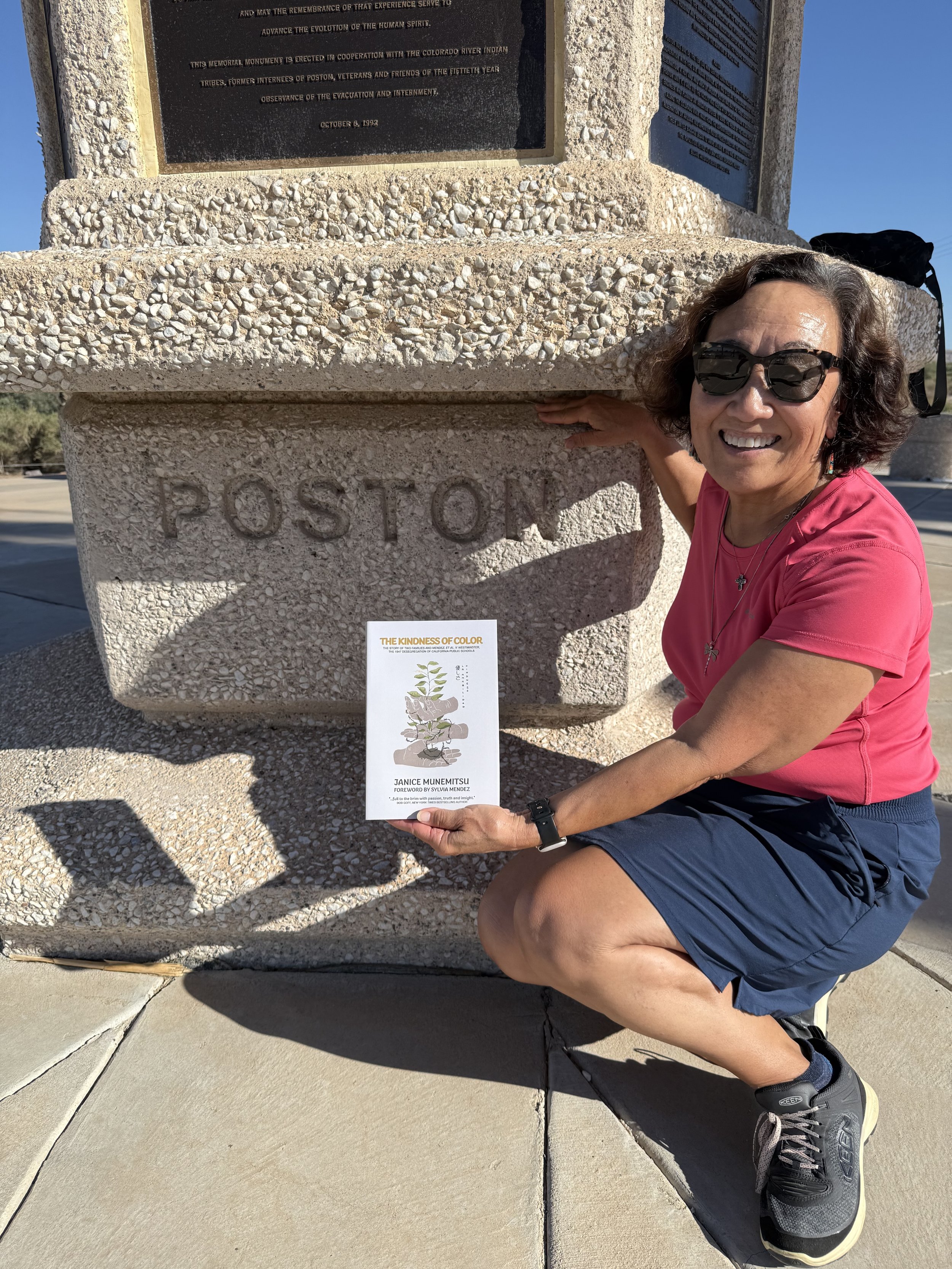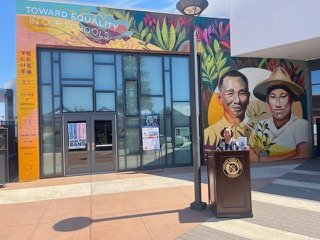“Surviving to Thrive”
In the last few weeks, I’ve spoken to 4th-6th graders, high school students, teacher certification students, an audience at the Japanese American Museum, pilgrims to Poston, AZ, and a group of Calif. law enforcement officers. One of the most frequently asked questions is: Did your dad have any resentment after the war against the United States?
If I knew I would end up writing a book about it, I sure would have thought to ask him. But from his life and what other friends remember about my dad, none of us recall any bitterness expressed or unexpressed in his life about this time in his life. He was honest about the facts and losses, but he didn’t dwell there. In fact, with my grandpa and dad, you would never know that they experienced unjust incarceration, ill-motivated accusation, incarceration and loss of freedom and financial hardships during WWII. They were pretty optimistic and happy guys!
That’s not to say that he didn’t have any resentment. After all, he is human and going through what he did in his early 20s, he was bound to have and harbor resentment. Wouldn’t anyone?
But, what you do with resentment and anger is the hope of moving forward.
Nearly 3 years ago at the Museum of Tolerance, I heard a Holocaust survivor’s story and literally, she almost lost her life 4 times as a child in the Nazi Concentration Camps. When asked, “how did you survive?” she replied, “Only God could save me.” She went on to say that she and her husband, also a former Holocaust prisoner, made a decision when they got married. “We decided that we were going to live as SURVIVORS, not victims.” When I heard that, something in my soul clicked.
I’m sure my dad was resentful and angry at the loss he suffered. Knowing my dad, he would be angry at the individuals and organizations who made poor, politically fueled decisions against the innocent Japanese immigrants and citizens. He did not hate America or Americans. He was an American who loved America. All of his best friends were Americans. But those in power made poor decisions and he and 125,000 other Japanese Americans paid the price in many different ways.
At the end of WWII, when the camps were closed and he and the family were able to leave, gratefully, they had a place to return to since they were able to lease the farm to the Mendez family. Despite their losses, at least he had a home to come back to on the Westminster farm. Many other Japanese Americans had nowhere to go.
Much like the Holocaust survivors’ story, my dad made a choice and decided to turn his resentment into gratitude for what he did have. He moved to action by inviting other families to stay on the farm, to work, make some money and save so they could get their own place. They behaved as SURVIVORS, not victims, working 7 days a week for years to make a life again. And as a result, he was able to live a good life as a happy man with many life-long friends. It wasn’t easy, it never is.
This history is our story, our legacy. It is our history, but history does not define who we are or what we can do in the midst of adversity.
Would my dad have a few things to say to correct FDR, Earl Warren, and other politicians for their unjust actions to incarcerate 125,000 innocent Japanese Americans? Sure, he would! But he would address them as a proud survivor with dignity, not as a hopeless victim of their economically-motivated, fear-based, political power in the 1940s.
“You planned evil against me; God planned it for good
to bring about the present result - the survival of many people.”
(Genesis 50:20)
I’m so grateful for our Japanese American history and the generation of true Issei and Nisei patriots who took this suffering and worked hard to re-build their lives again for the generations to come. I’m ever grateful for the example of my dad and our family to be resilient, believe in each other, have faith, and persevere to move forward. Their lives are the best lesson and model for me. May I make them proud that their sacrifice was not in vain.








